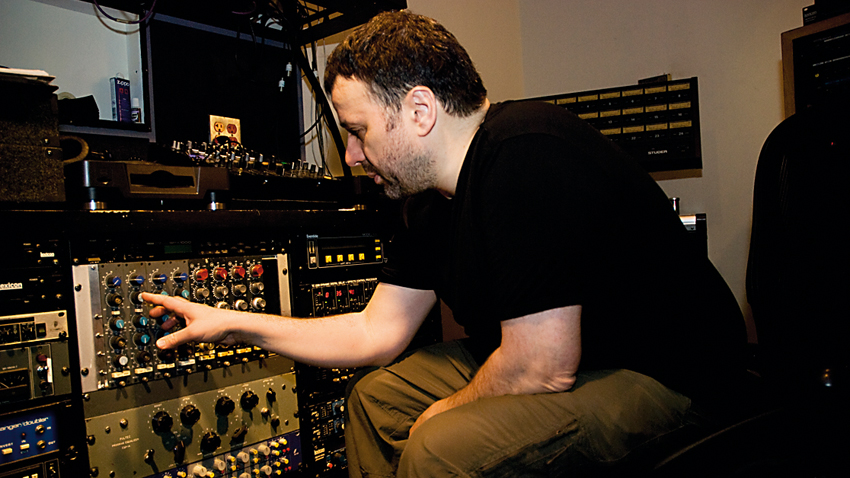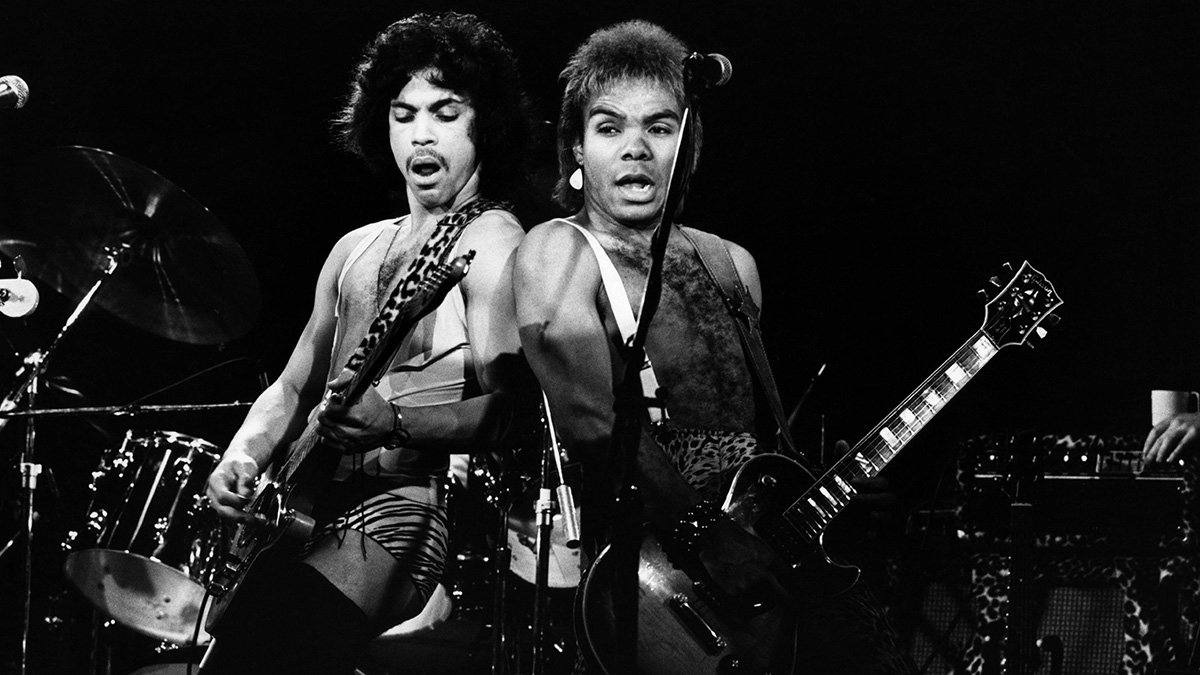François K studio interview
A classic FM video from 2008
There are few people that could match François Kevorkian, aka François K's, career CV, becoming one of the most significant contributors to Electronic music over the past 30 years. He's been a drummer, a DJ, an A&R man, studio owner, producer, remixer and fully-fledged recording artist in his own right. But, more notably is still creating and remixing at the forefront of technology and music, headlining huge DJ gigs and producing spectacular tracks in the studio.
"I tried DJing because the drumming work was so hard to get, I taught myself to splice and edit tape using some scissors and scotch tape."
Born in France, but now a fully-fledged New Yorker, François Kevorkian started as a drummer during his college years around 1973 and although he was a drummer, he always seemed to be taking care of the electronic side of things when playing in the bands he joined. After a brief experience as a DJ playing background music, he moved to New York in '75, looking for work as a drummer.
Eventually he landed a strange gig playing drums alongside a DJ (notably which led to Kevorkian learning the art of DJing and furthering his interest in the technical aspects of music). "I already knew some basic stuff about tape and recording", explained Kevorkian, "I could do tape echoes and silly effects between tape machines and such. I tried DJing because the drumming work was so hard to get, I taught myself to splice and edit tape using some scissors and scotch tape." These edits and prior musical training gave Kevorkian a real edge over many of the other DJs. Having his own dubplates to play his exclusive versions of the records meant he quickly rose through the DJ ranks.
When asked about those days and if there was any piece of technology that changed everything, Kevorkian sharply replied, "I've been asked this before and to be honest, I don't see how you could choose just one development as there were so many. For a start, the Linndrum and Oberheim DMX machines meant that people could program and sequence music very quickly and efficiently.
"In the beginning a remix was another mix of the record whereas now it's really a re-production."
Once MIDI came, these instruments could not only synchronise with each other but could actually talk and communicate with each other. The third of course would have to be Pro Tools, or Sound Designer as it was called back then, but when it went fully multi-track in the '90s it was the real changing point." In the mid-80s, Kevorkian started to produce more and more and had built up a small amount of gear, but was frustrated at the studios he was using. "I was constantly living in other people's studios", explains Kevorkian "it was such a mess trying to set these studios up for Electronic music. They were all geared towards Rock music, with valve amps, mics and so on, but really knew nothing about MIDI, or timecode or anything like that. There was almost resentment towards Electronic music and no studio in New York catered for it. So, every time we had a session in one of these studios we'd have to spend at least half a day setting all of this stuff up. It got to the point when I was so sick of setting up, I decided to make my own facility."

By 1987, Kevorkian had his facility, Axis Studios, consisting of a single room before it quickly expanded into four rooms, three commercial and one private. The client list for Axis became a incredible list of huge chart-topping names such as Madonna, Teddy Riley, Mariah Carey, Dee-Lite to name a few, and he wasn't short of gear to put in it as he explains. "By this point I had all the outboard you could imagine - SSL consoles, Amek consoles, Studer and Mitsubishi tape machines and some of the gear still sat around me today."
When we asked about how this shift from analogue to digital has affected the way he works, Kevorkian positively commented, "I have five or six different Pro Tools configurations, from the full HD3 to the tiny Mbox Micro for when I'm on the road."
Get the MusicRadar Newsletter
Want all the hottest music and gear news, reviews, deals, features and more, direct to your inbox? Sign up here.
Modestly, Kevorkian has never considered himself a mix engineer. "I only ended up doing it because the engineer didn't show up, or there was no budget for one so I had to do it all myself. But basically as of late, compared to what I used to do, most of my work has been orientated towards DJing and live performance again. I've been for twenty years like a gun for hire, and mixed over 1,000 records in every kind of music you an imagine. "In the beginning a remix was another mix of the record whereas now it's really a re-production.
If a guy shows up with a track using a Depeche Mode sample, he then wants me to create a new track using this sample, give me a flat fee and he then owns my record. But mine has been born the same way as his, it's just an original track using a Depeche Mode sample.
It's fine to build your name this way and be involved with exciting acts this way like the remixes I did for Moloko. It's nice to work with a vocal like Roisin's but she called me again recently and I had to say no. I haven't been able to bring myself to do any commercial remixes in the last year really." Kevorkian has really stepped back from being the producer of others and really only gets excited now about what he calls, 'the blurring of live performance and music creation'. "I just find it much more exciting. I can be playing to a crowd and creating new music at the same time."
"I much prefer to work in a quirky kinda way, whether it's starting from a sweet melody or some nice chords I've heard to fiddling around with random sounds."
It's these blurring boundaries and Kevorkian's previous history as an accomplished drummer that leads us to question how he sees himself - as a programmer or a player. "Well, from time to time I hire professional players when I really want some masterful playing, but really this is a question that would be relevant ten years ago." He defensively explains, "The track The Road Of Life, I made after I bought the Arturia Moog Modular software. I was playing around with the sounds and I made a track. Is that programming or playing?" It's clear that François K will make music with whatever is there, regardless of technology.
This DJing freedom translates into the studio where Kevorkian's track creation is far from regimented. "I know some people will start with the drums, or some chords but I really can't work like that. I think I would have got bored by now if I tried to work to a musical template. I've worked in the studio for so long and have seen many producers and engineers who have templates for treatments of tracks, putting the same reverbs on the same sends and using the same preset delays and so on. I much prefer to work in a quirky kinda way, whether it's starting from a sweet melody or some nice chords I've heard to fiddling around with random sounds. It's much more inspiring."
Still at the forefront, François K is still a name very relevant to the new generation of music lovers but we wondered what he was going to next. "As far as the future goes", Kevorkian explained "I'm working on much of my own solo material and I need to find some time to really finish a complete coherent album as I've just been doing mixes and compilations. I'll still be touring and playing live but as I said before, I'm cutting back on the remixing and other projects to focus on my own material."


“They didn’t like Prince’s bikini underwear”: Prince’s support sets for the The Rolling Stones in 1981 are remembered as disastrous, but guitarist Dez Dickerson says that the the crowd reaction wasn’t as bad as people think
“We are so unencumbered and unbothered by these externally imposed rules or other people’s ideas for what music should be”: Blood Incantation on the making of Absolute Elsewhere and how “Data from Star Trek” saved the album – and the studio









